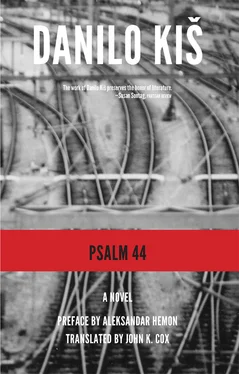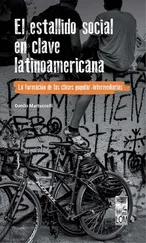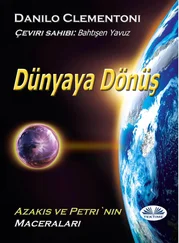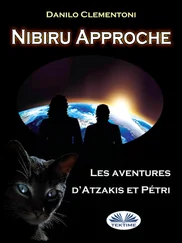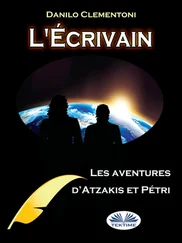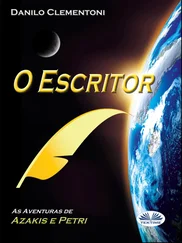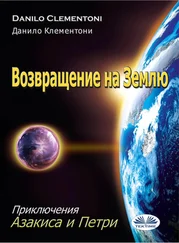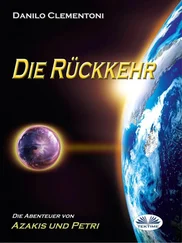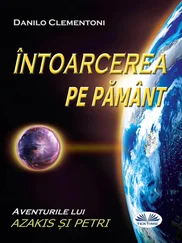“What’s going on?” said the man in the clogs.
“Patrol!” came the voice of the bloodhound: “Somebody’s messing around in the hallway.”
“I did hear something crashing about,” said deus ex machina. “As if someone were overturning that bench. I’d just gotten back from headquarters. (I worked the night shift.) And I had just fallen asleep, when something went bang. And I remembered that somebody had put a bench out there yesterday.”
“Who could have knocked it over? Exiting the premises is forbidden now. It just struck three A.M.”
And Maks said:
“It had to be one of those women from the other end of the barracks.”
The steps of the bloodhound receded and Marija could hear Maks closing the door.
“Stay here until the barking quiets down”: in the darkness she couldn’t see his face. “Are you injured?”
“No,” she said. “I scraped my shin a bit. . Trivial detail, compared to what could have happened.” Then she added: “Just a trifle. . Maks.”
That’s why she told Žana: “I almost saw him one time. Maks, that is.”
And now she thought once more — still lying there motionless and watchful next to her child — among a great burst of other thoughts about the future (in the distance, the artillery had again begun to sing): How will I find Jakob ? Quite directly, and barely acknowledging the sense of peace and security with which she said this to herself, she thought once again: How will I find Jakob ? as though that were the only thing remaining to do and as if she were thinking all this from the other side, outside of the wire and outside of the past, even outside of the present: as if this thought had begun to take wing from some already achieved future here at one’s fingertips; all that separated her from it was an insignificant revolution of the clock and two or three relaxed steps as when you’re heading out on an excursion and the shady woods come into view and you begin to smell the wildflowers and conifers and there’s a bit of something to eat in the basket along with a thermos and white napkins and all you have to do is sprawl out on the grass and take out the tablecloth and spread it out over the same rustling green grass: and in her mind reverberated, almost audibly, the words HOW WILL I FIND JAKOB? like a leitmotif that disappears and then rushes back in more and more powerful bursts. She had wanted to say to Žana How will I find Jakob so that Žana would notice that she wasn’t sleeping but then it occurred to her that if she were to announce her thought aloud then it might flinch at the immediate future and collide with this grubby barracks, with Polja’s dead body, and with all the rest of it, and then it would plummet into the straw and remain lying there like a bloody bird with a bullet wound that trembles and squirms before it croaks; and this wouldn’t only happen if she were to say it aloud like that, How will I find Jakob , but really even the fact that she would think it, thereby clearly underscoring that there was no longer any doubt in her mind about Jakob’s freedom or her own — even that was enough to set off a revival of doubt. That decisively articulated thought, aimed squarely at the future, was enough to turn all of her thoughts around toward the past, like a triple echo. Anyway it was only because her newborn thought was incapable of locating Jakob in a clear future perspective that she devoted herself with all her strength to a Jakob who was nonetheless more reliable in the past. And in the present, of course. Therefore she said nothing to Žana. Even if she wanted to say it the way it had arisen in her consciousness — it would be too late. Her thoughts were already seeking a different Jakob in the past. A less optimistic Jakob. But clearer, more real. He was still the only genuine Jakob, perhaps no longer of flesh and blood but only a frozen film frame in her mind: he stands there with raised hands, making some restrained gesture (the way she had last seen him): momentum at a standstill.
That was the most recent and only real Jakob, the last one she’d seen with her own eyes. Not, therefore, the phantomlike and unreal Jakob about whom she was receiving news through the even less visible Maks. For how could she have a clear conception of Jakob when from somewhere or other, like a bolt from the blue or straight out of hell itself, she’d get coded messages like “The trip went fine” or “The weather was nice” and all sorts of other such meteorological issues in which she was supposed to, first of all, unearth a meaning such as “Jakob has been moved” or “Jakob will contact you” and so forth, but also, secondly, discover under all of it a living, real character, that of Jakob. Even the infrequent oral statements that reached her third-hand from Jakob by way of Maks’s representatives, even these reports didn’t help her much to see Jakob — nothing did — apart, of course, from things she remembered, insofar as she had any memory at all and could recognize even for a moment the face that with all of her powers she was always trying to call to mind.
She remembered: at that time all of the women who had arrived with her were already dead, likewise all those who had replaced them in her barracks in Auschwitz. She no longer recalled faces, more just columns of skeletal reminiscences. Though faceless, she could still however remember some, maybe even all of the women she had gotten to know during those days when a mechanical hand wasn’t dispatching each and every one of those countenances into oblivion; though mainly recalled the Babylonian confusion of languages, the times when somebody, so-and-so, would slip through the fingers of that mechanical hand, especially when it was one of the early arrivals, one of those that formed a solemn procession ending with Polja, who was now lying there dead beside her. The first was Eržika Ignac. The one who Dr. Nietzsche picked right at the beginning, as a guinea pig. Then Nameless, who played in the prisoners’ orchestra;—but the mechanical hand that would light a red light to warn of rebellion and go into action to sever contact before any misfortune could occur, or at least before the great shock of a dose of high-voltage current arrived, that hand had now compressed the column of women with one powerful sweep and covered it up with a clean white shroud of the type placed on the catafalques of heroes or virgins; Marija was the only one, the only one for a long time now, who stood next to that catafalque like a soldier who by some miracle had remained alive after the explosion of a bomb that fell into the trench where his unit was fighting, and who now stands bare-headed next to the mass grave, with flowers in hand, reading from the marble the names of those who had been his comrades-in-arms and with whom he had shared his cigarettes and exchanged in moments of weakness family photographs and memories, and who now in anguish thinks back to all of those friends at rest under the marble obelisk, transformed into golden letters, and he wonders how this could be, by dint of what miracle had he missed being part of the formation at that final roll call, for his place was there, in that line, right alongside the first in the row, who was A, and the one behind, who was C, and whose names were now impressed in the marble of the monument.
That’s how she felt now in front of the obelisk of memories: standing with a bouquet of flowers and amazed, hardly believing her eyes. Consequently she now needed to search for Jakob in her memory, there where she had left him nearly an eternity ago, actually not quite a year ago, if one assumes that at some point she really took leave of him, for in all honesty spiritual presence is itself nothing more than a marble obelisk, but now she wanted to find that Jakob, the one who was more than an obelisk perpetually present, because an obelisk is raised to those who are absent for good, which is the same thing as death, albeit a somewhat nicer way of saying it.
Читать дальше
